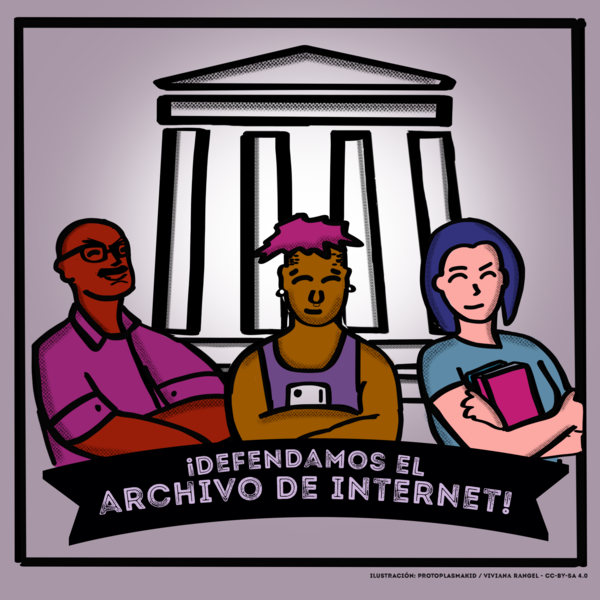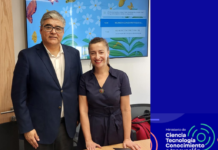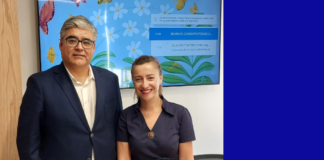The member organizations of the Alianza de la Sociedad Civil Latinoamericana para el Acceso Justo al Conocimiento (Latin American Civil Society Alliance for Fair Access to Knowledge) together with the undersigned organizations and individuals, dedicated to the study of Internet public policies and the defense of fundamental rights, express our concern regarding the decision made by Judge John G. Koeltl in the case of Hachette v. Internet Archive on March 25th and we stand in solidarity with the Internet Archive team.
We recognize Internet Archive as a non-profit library, as it fulfills the traditional social functions of a library such as preservation, memory and, fundamentally, providing access to information and knowledge. These functions can never be fully performed by companies whose primary purpose is profit and not the public interest. The archaic view that associates libraries with buildings or with the management of physical copies is no longer appropiate today.
It is essential that libraries have the capacity to purchase and lend electronic copies under reasonable licensing terms, as well as to provide remote access to their collections, even if this means digitizing their physical copies. All this under the understanding that libraries will never lend more copies than they purchase (in physical or digital format) and that access will be controlled in order to prevent copying and access will be blocked after the loan period has expired.
We reaffirm that controlled digital lending (CDL) is not at all different from conventional lending, which also allows many people to access the same copy of a work that the library purchased only once. The only practical difference is that, when applied to copies that the library acquired in physical format, it requires digitalization (right of reproduction) in addition to online distribution (right of making available) under the aforementioned conditions. In the ruling, Judge Koeltl states that there is a lack of guarantees that these conditions will actually be met. However, this is not an argument against the LDP used by Internet Archive; in that case, the focus should be placed on improving such safeguards rather than tearing down the practice as a whole.
We defend the idea that individuals and communities need universal and equitable access to information, ideas and the creations of the human intellect to achieve their social, educational, cultural, democratic and economic well-being. Freedom of access, as well as freedom of expression and the right to participate in cultural life and scientific progress are rights enshrined in Articles 19 and 27 of the Universal Declaration of Human Rights. The judge should have taken special account of the fact that the conflicting interests are not of the same nature and that the right to economic exploitation of a publishing house does not have the status of a human right. Unfortunately, the judge does not include the human rights perspective in the analysis of the four Fair Use factors.
We understand that this ruling does not only affect Internet Archive: it affects all libraries in the United States and is also a strong setback for libraries and librarian associations around the world that have been fighting to legalize this practice, given that it is the only mechanism that would allow them to provide their services under the logics of the 21st century.
Finally, we support the Statement on Controlled Digital Lending of the International Federation of Library Associations and Institutions (IFLA) and align ourselves with the position that all countries should recognize the borrowing of works by libraries, that laws should be adapted to the digital environment to allow libraries to continue their mission of providing access to information and knowledge in the modern age, and that the combination of exceptions, for example, for digitizing and lending, should not be unnecessarily restricted.
Signed by:
ORGANIZATIONS:
- Alianza de la Sociedad Civil Latinoamericana para el Acceso Justo al Conocimiento, integrated by:
- Derechos Digitales, Latin America
- InternetLab, Brazil
- IBDAutoral, Brazil
- Karisma Foundation, Colombia
- Vía Libre Foundation, Argentina
- Hiperderecho, Peru
- Laboratorio de Datos y Sociedad (Datysoc), Uruguay
- R3D: Red en defensa de los derechos digitales (Digital Rights Defense Network), Mexico
- Creative Commons, Uruguay
- Creative Commons, Mexico
- Internet Foundation, Bolivia
- Ártica – Online Cultural Center
- Cultivando Género AC, Mexico
- Taigüey Foundation, Republica Dominicana
- Sulá Batsú Cooperative, Costa Rica
- Mesa Centroamericana para la Equidad, Central America
- Laboratorio de resiliencia digital (comun.al), Mexico
- Tierra Común Cooperative, Mexico
- Northeastern Civic AI Lab, Mexico & USA
- NGO Innovarte, Chile
- Wikimedians from Uruguay
- Redalyc Scientific Information System
- Conocimiento Abierto
- InfoTecarios
- org Cooperative
- Mexican Federation of Rare Diseases
- @segudigital, Mexico
- Impronta Publishing House, Mexico
- Hydra + Fotografía SC, Mexico
- Photo Observatory of the Mexican Photographic Heritage
- IPANDETEC, Central America
- Conector Foundation, Colombia
- Wikimedia Mexico
- Interdimensional Pirate Party, Argentina
- MIAU: Latin American network for access to knowledge
- Programando LIBREros, Mexico
- CódigoSur, Central America
- Ascolbi, Colombian Association of Librarianship, Librarians and Libraries, Colombia.
- People’s Laboratory of Free Media
- Noticias de abajo
- ABU, Association of Librarians of Uruguay
- AUA, Uruguayan Association of Archivists
- Venezuela Inteligente
- Latin American Internet Research Center
- Creative Commons, Venezuela
- Associação ARTIGO 19 Brazil and South America
- ANABE, National Association of Librarians Eugenio Espejo of Ecuador
- Association for Progressive Communications – APC
- Sursiendo, Digital Culture and Communication, Mexico
INDIVIDUALS:
- Carolina Martínez Elebi, Argentina
- Franco Giandana, Argentina
- Celia Palacios Gómez Tagle, Mexico
- Francisco J. Serrano Franco, Mexico
- Saiph Savage, Mexico
- Irene Soria, Mexico
- Verónica Gerber Bicecci, Mexico
- Guillermo Espinosa Estrada, Mexico
- Martin Adalberto Tena Espinoza de los Monteros, Mexico
- Alejandra Quiroz Hernández, Mexico
- Gabriela González Reyes, Mexico
- Eugenia Macías Guzmán, Mexico
- Perla Adriana Carral González, Mexico
- Marcial Alejandro García Pérez, Mexico
- Luis Álvarez Azcárraga, Mexico
- Mónica Johanna Sandoval, Colombia
- Adriana Yamile León, Colombia
- perro tuerto, Mexico
- Claudia García Ramirez, Mexico
- @petrohs, Mexico
- @criptomiau, Mexico
- José Reyes, Mexico
- Carmen Alcázar, Mexico
- Omar David Sandoval Sida, Mexico
- Tania Solá, Mexico
- Manuel Podetti, Uruguay
- Alicia Ocaso, Uruguay
- Emilena Cardozo, Uruguay
- Víctor Aguirre Negro, Uruguay
- Tzutzumatzin Soto, Mexico
- Eliana Quiroz, Bolivia
- @Aradnix, Mexico
- Rosario Nogués, Uruguay
- Mónica Paz, Uruguay
- Rosidalia García Salazar, Guatemala
- Verónica Jacqueline Maigua Delgado, Ecuador
- Luis Eduardo Puente Hernández, Ecuador
- Lianet Escalante Navarro, Ecuador14










